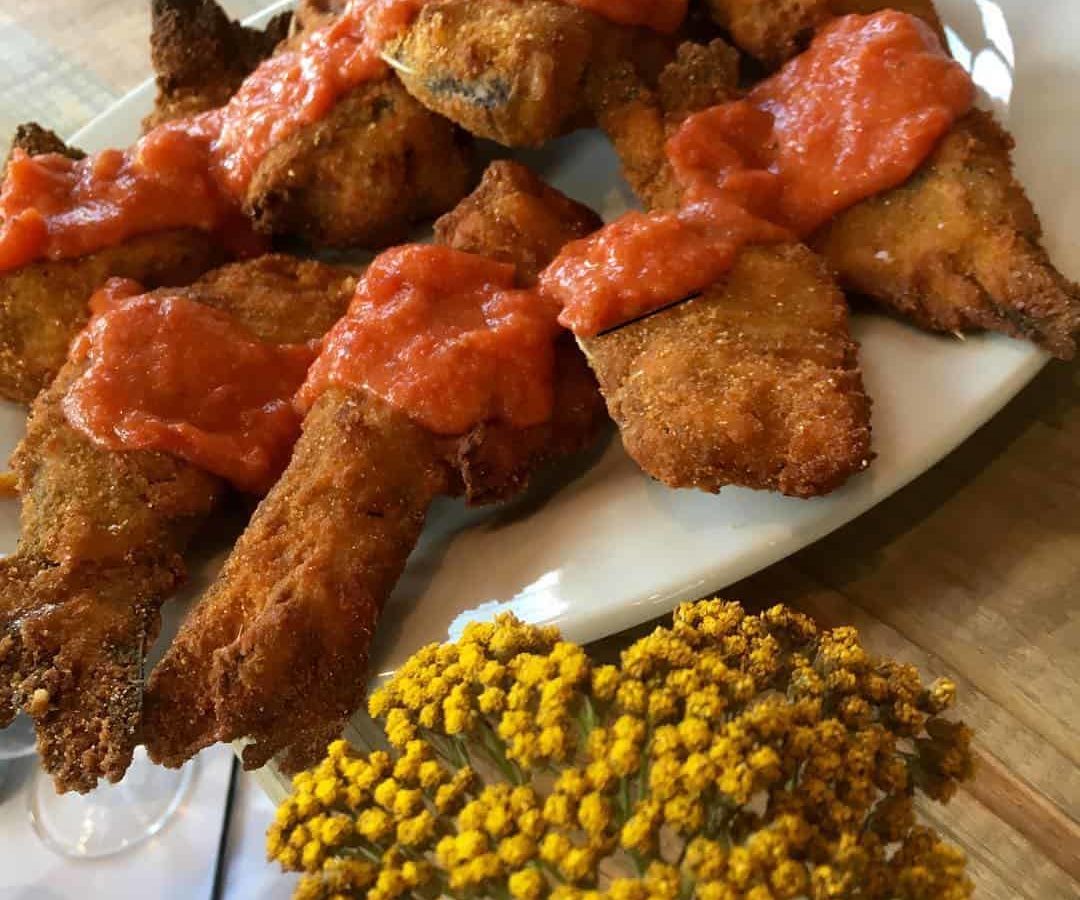

Two weeks ago I was preparing to travel to Mississippi. As I went from store to store getting prepared for the trip people would ask where I was going and I would tell them Mississippi with great excitement. Invariably, people would ask, “Why?”
The question ignored the fact that Mississippi is a state with great natural beauty, delicious culinary traditions, wonderful live music, and (occasionally) good college football. I would tell them that I was going to a conference on food orchestrated by the Southern Foodways Alliance (SFA) — but also a conference that is about more than food. In 2014, for example, the theme was “Who is welcome at the welcome table?” and featured an array of important voices to the national debate including Ta-Nehisi Coates.
The paradox of the South — a region known for both hospitality and fighting desperately to remain segregated, a region rich in agriculture and high in obesity, a region of booming cities and dying small towns — was on display last week as we traveled to Oxford, Mississippi.
Dean McCord, a Raleigh-based attorney, SFA Board member, friend, and our carpool driver from the Memphis airport to Oxford for the Symposium pointed out:
“The South is the most impoverished region in our country. It has had the worst social welfare system and the poorest education. And yet, the foodways traditions in the South are the strongest and most vital in the nation.”
I’ve long believed that food is an access point for stories, relationships, and yes, for creating change. I often begin public remarks by asking folks if they had food in the last twenty-four hours and I remind them that if they eat, then they can join the movement.
The SFA began out of a desire to document the traditions and stories of the Southern foodways, but also to raise important questions and dialogue around the pressing challenges of our region. Challenges that matter to us all — race, poverty, education, and our health.
John T. Edge, the leader of SFA, told an interviewer once:
“Food on the table is a catalytic converter: reaching for the country ham and talking about the Appalachian roots of your grandfather, or reaching for the okra and talking about the African roots of this whole place. Those foods are facilitators of dialogue and touchstones of culture. They’re just a way to get you into the conversation.”
For too long, many of our fellow Americans have been divorced from our food system. We lost sight of who planted, grew, harvested, and even cooked the food. We lost the connections and the health crisis grew because we stopped valuing food. This was true in much of the South as well, but enough people cared about our culinary traditions to keep them going. We eat as much McDonald’s as any region in the country, but you are going to drive by a BBQ shack or “meat and three” diner on your way to pick up your Happy Meal.
And so it makes a certain amount of sense that an organization that wanted to use food as a facilitator for important and often difficult conversations would launch in the South.
All of these thoughts swirled in my mind as I traveled to Oxford. I will admit that I wasn’t entirely sure of the creation story of the SFA until a friend who has worked with them told me that much of the heart of the organization flows from noted Southern author and leader John Egerton. Egerton understood that people were far more likely to open up when speaking about food than more difficult conversations about race and class, so why not use food as the vehicle for the important work of building a South with less division?
The first full day of Symposium began with noted writer Kiese Laymon reading from an essay he wrote that connected the dots between a Grandmother’s love to Outkast and back again. Laymon spoke of his Grandmother working hard in a chicken factory. He spoke of the Friday evening tradition of his Grandmother and her boyfriend taking him to grab fried chicken and fish takeout. He spoke of Andre 3000 declaring “The South got something to say” at the Source Awards in 1995 and how it was powerful for him to hear people who sounded like him and his friends take the stage nationally. But it was when he spoke of “thanking white people for being less destructively white than they could be” that the powerful confluence of using food and culture to address our challenges truly sank in for me.
Other speakers would address complex questions of identity due to coming from an immigrant background, or due to orientation, or due to coming of age during the 1970s and 1980s when the real emphasis was for the South to become the “new South” and erase vestiges of our past. All of these discussions related back to the overall symposium theme of Pop South.
We watched a documentary about Crook’s Corner co-founder Bill Neal, which addressed his career trajectory including his popularizing of shrimp and grits nationally, but it also spoke to the AIDS epidemic as Neal died tragically at 41. I had the good fortune to spend much of the long weekend with Bill Smith who is now the Chef at Crook’s Corner, and who learned much from Bill Neal, and it drove home the emotion of the film.
The meals were also designed to tell a story. Sean Brock, of Husk in Charleston prepared a twenty dish meal that was both a love story to his mother, who helped him prepare the meal, and to the cooking traditions of Appalachia.
Race. Class. Orientation. Life. Love. Loss.
All of the issues that can define us, and even divide us, were taken on over the course of the weekend. I could see the power of what John T. called the “catalytic convertor” and it was easy to see why Egerton believed that we could use food to tackle complex issues.
I asked John T. last week about John Egerton’s ongoing influence on the organization, “From inception, this SFA has attempted to leverage our national love of Southern foods — from fried chicken to barbecue — to frame questions about race, class, gender, and identity. That’s straight out of the Egerton playbook.”
Even now they are considering how to push the work ahead, John T. shared that the SFA is planning an initiative to focus on the historical responses to poverty in the South ranging from Fannie Lou Hamer’s Freedom Farm to “prescription food initiatives” that served the Delta.
Our conversation took me back to my Grandmother’s diner. I can recall clearly reading books on Southern history over a warm plate of biscuits and sausage gravy. I can recall learning even more about the present day over chili cheese hamburgers with truck drivers, retired teachers, and the police officers who made up the regular lunch crowd. The diner was the first place I can remember talking about my first kiss, and growing red in the face, and it was where I would learn about loss when an older customer would stop coming in.
We can learn a lot over a meal.
It is important that we consider how storytelling, food, and bringing people together can spark meaningful dialogue about the issues facing North Carolina. I can’t help but think that the answer to the challenges facing our state, and our education system, can be found within us if only we take the time to have those conversations together. That is the most powerful lesson I brought home from Oxford.


